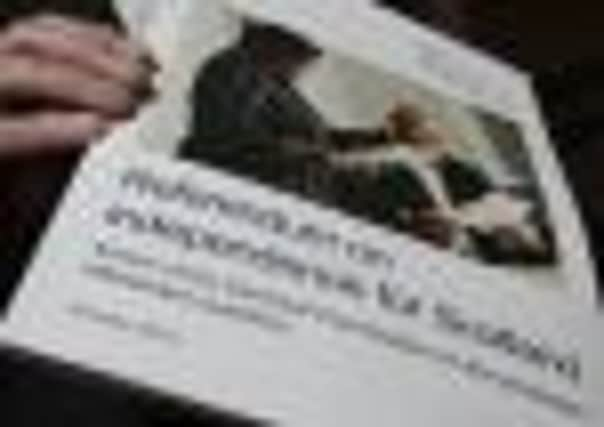Eddie Barnes: Polls key to referendum momentum


THERE’s a long and dishonourable tradition in politics of arguing that polls don’t matter. “There is only one poll that matters,” declares a politician responding to an unfavourable finding, “and that’s the view on polling day.” Like the packaging of a Findus beef lasagne, this is one of those phrases that doesn’t quite reflect the truth on the inside.
The polls do matter, helping to set the mood and giving direction to the campaign for votes. In the independence referendum campaign at present, the direction is lacking; support for independence is continuing to wobble around the 30-35 per cent figure, as it has broadly done since devolution.
Advertisement
Hide AdAdvertisement
Hide AdOddly, there’s now a case for saying that both sides in the debate could do with the same thing over the coming months – a marked narrowing in the contest.
For the pro-independence team, that much is obvious. Yes campaigners are of the view that when the contest starts for real next summer, they will need to be ahead in the polls to stand a decent chance (a rule of referendum-ology declares that the “change” option needs to be ahead going into a short campaign if it wants to cling on for victory).
That leaves less than a year and a half to achieve a massive swing. A start in that any time now would be useful. What’s more, the campaign requires some momentum, if only to persuade voters that independence is a realistic prospect.
The Yes campaign is on record as saying it thinks the polls will tighten over the next 12 months. If the polls don’t budge, it will only add to the impression that the campaign is dealing in hypotheticals.
On the other side of the fence, the pro-UK side isn’t exactly going to grumble about the 15-point lead it scored in the latest Angus Reid poll. But a tightening in the polls might also help address some of its greatest fears. First and foremost is the terror that, on referendum day next autumn, the campaign suffers a bad case of the DTs – or differential turnout.
The worries are based on the assumption that the pro-independence side will have the more motivated support base; people who support independence and are given the chance to vote in a referendum on independence are, it is fair to suggest, quite likely to vote in that independence referendum.
The nightmare scenario for Better Together is that it loses because thousands of apathetic voters, who back the Union only in so much as they back having ten toes, aren’t quite so bothered and end up staying at home.
Therefore, it is suggested, a tightening in the polls might help to stir people from the couch and make them that much more likely to vote. It might also, pro-UK campaigners believe, prompt those pro-UK business leaders who have so far kept their silence – on the grounds independence isn’t going to happen – to come out and have their say.